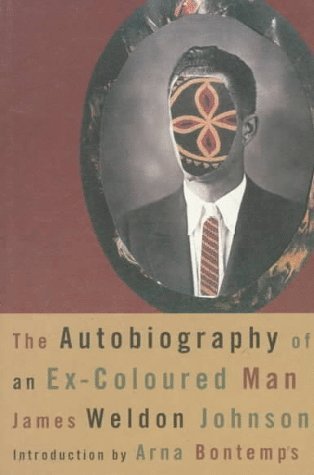Das Seminar, das ich in diesem Semester belegen musste belegt habe, lässt diesen Blog wohl kurzfristig sehr buchlastig werden, zumal es um ein Thema geht, mit dem man sich wohl im alltäglichen Leben- zumindest in Deutschland- nicht direkt auseinander setzt, obwohl es auch in unserer Gesellschaft Gang und Gebe ist (wenn auch eher unbewusst).
Neben einigen Kurzgeschichte, sind auch drei Bücher auf der "to-read"-Liste, die ich Euch gerne mal vorstellen möchte.
Obwohl die Bücher aus verschiedenen Epochen stammen, so haben sie doch eines gemeinsam: "Passing- racial identity"- ein soziales Phänomen, welches sich schwer in Worten greifen lässt. Zumindest würde es den Rahmen eines Blog-Eintrages deutlich sprengen. Autoren haben sich immer wieder daran versucht und so entstanden Werke, die ihrer Zeit gemäß die Problematik behandeln und beschreiben. Für uns heute schwer nachzuvollziehen, doch damals z.T überlebenswichtig.
Nella Larsen: Passing (1928)
Clare and Irene were two childhood friends. They lost touch when Clare's father died and she moved in with two white aunts. By hiding that Clare was part-black, they allowed her to 'pass' as a white woman and marry a white racist. Irene lives in Harlem, commits herself to racial uplift, and marries a black doctor. The novel centers on the meeting of the two childhood friends later in life, and the unfolding of events as each woman is fascinated and seduced by the other's daring lifestyle. The end of the novel is famous for its ambiguity. Many see this novel as an example of the plot of the tragic mulatto, a common figure in early African-American literature. Recently, Passing has received renewed attention because of its close examination of racial and sexual ambiguities and liminal spaces. It has achieved canonical status in many American universities. (Quelle: Goodreads.com)
Clare and Irene were two childhood friends. They lost touch when Clare's father died and she moved in with two white aunts. By hiding that Clare was part-black, they allowed her to 'pass' as a white woman and marry a white racist. Irene lives in Harlem, commits herself to racial uplift, and marries a black doctor. The novel centers on the meeting of the two childhood friends later in life, and the unfolding of events as each woman is fascinated and seduced by the other's daring lifestyle. The end of the novel is famous for its ambiguity. Many see this novel as an example of the plot of the tragic mulatto, a common figure in early African-American literature. Recently, Passing has received renewed attention because of its close examination of racial and sexual ambiguities and liminal spaces. It has achieved canonical status in many American universities. (Quelle: Goodreads.com)
Danzy Senna: Caucasia (1999)
Birdie and Cole are the daughters of a black father and a white mother, intellectuals and activists in the Civil Rights Movement in 1970s Boston. The sisters are so close that they have created a private language, yet to the outside world they can't be sisters: Birdie appears to be white, while Cole is dark enough to fit in with the other kids at the Afrocentric school they attend. For Birdie, Cole is the mirror in which she can see her own blackness.Then their parents' marriage falls apart. Their father's new black girlfriend won't even look at Birdie, while their mother gives her life over to the Movement: at night the sisters watch mysterious men arrive with bundles shaped like rifles.One night Birdie watches her father and his girlfriend drive away with Cole—they have gone to Brazil, she will later learn, where her father hopes for a racial equality he will never find in the States. The next morning—in the belief that the Feds are after them—Birdie and her mother leave everything behind: their house and possessions, their friends, and—most disturbing of all—their identity. Passing as the daughter and wife of a deceased Jewish professor, Birdie and her mother finally make their home in New Hampshire. Desperate to find Cole, yet afraid of betraying her mother and herself to some unknown danger, Birdie must learn to navigate the white world—so that when she sets off in search of her sister, she is ready for what she will find. At once a powerful coming-of-age story and a groundbreaking work on identity and race in America. (Quelle: Goodreads.com)
Birdie and Cole are the daughters of a black father and a white mother, intellectuals and activists in the Civil Rights Movement in 1970s Boston. The sisters are so close that they have created a private language, yet to the outside world they can't be sisters: Birdie appears to be white, while Cole is dark enough to fit in with the other kids at the Afrocentric school they attend. For Birdie, Cole is the mirror in which she can see her own blackness.Then their parents' marriage falls apart. Their father's new black girlfriend won't even look at Birdie, while their mother gives her life over to the Movement: at night the sisters watch mysterious men arrive with bundles shaped like rifles.One night Birdie watches her father and his girlfriend drive away with Cole—they have gone to Brazil, she will later learn, where her father hopes for a racial equality he will never find in the States. The next morning—in the belief that the Feds are after them—Birdie and her mother leave everything behind: their house and possessions, their friends, and—most disturbing of all—their identity. Passing as the daughter and wife of a deceased Jewish professor, Birdie and her mother finally make their home in New Hampshire. Desperate to find Cole, yet afraid of betraying her mother and herself to some unknown danger, Birdie must learn to navigate the white world—so that when she sets off in search of her sister, she is ready for what she will find. At once a powerful coming-of-age story and a groundbreaking work on identity and race in America. (Quelle: Goodreads.com)
James Weldon Johnston: The Autobiography of an Ex-colored man (1912)
James Weldon Johnson's emotionally gripping novel is a landmark in black literary history and, more than eighty years after its original anonymous publication, a classic of American fiction. The first fictional memoir ever written by a black, influenced a generation of writers during the Harlem Renaissance and served as eloquent inspiration for Zora Neale Hurston, Ralph Ellison, and Richard Wright. In the 1920s and since, it has also given white readers a startling new perspective on their own culture, revealing to many the double standard of racial identity imposed on black Americans.Narrated by a mulatto man whose light skin allows him to "pass" for white, the novel describes a pilgrimage through America's color lines at the turn of the century--from a black college in Jacksonville to an elite New York nightclub, from the rural South to the white suburbs of the Northeast. This is a powerful, unsentimental examination of race in America, a hymn to the anguish of forging an identity in a nation obsessed with color. (Quelle: Goodreads.com)
James Weldon Johnson's emotionally gripping novel is a landmark in black literary history and, more than eighty years after its original anonymous publication, a classic of American fiction. The first fictional memoir ever written by a black, influenced a generation of writers during the Harlem Renaissance and served as eloquent inspiration for Zora Neale Hurston, Ralph Ellison, and Richard Wright. In the 1920s and since, it has also given white readers a startling new perspective on their own culture, revealing to many the double standard of racial identity imposed on black Americans.Narrated by a mulatto man whose light skin allows him to "pass" for white, the novel describes a pilgrimage through America's color lines at the turn of the century--from a black college in Jacksonville to an elite New York nightclub, from the rural South to the white suburbs of the Northeast. This is a powerful, unsentimental examination of race in America, a hymn to the anguish of forging an identity in a nation obsessed with color. (Quelle: Goodreads.com)
Mal sehen, wie sich das Seminar in den nächsten Wochen entwickeln wird, und welchen Einfluss es auf meine Sichtweise bezüglich dieses Thema hat. Letztlich ist es jedoch das einzige Seminar, welches ich im Bachelor besuchen muss. Wie es dann weitergeht...wir werden sehen.














